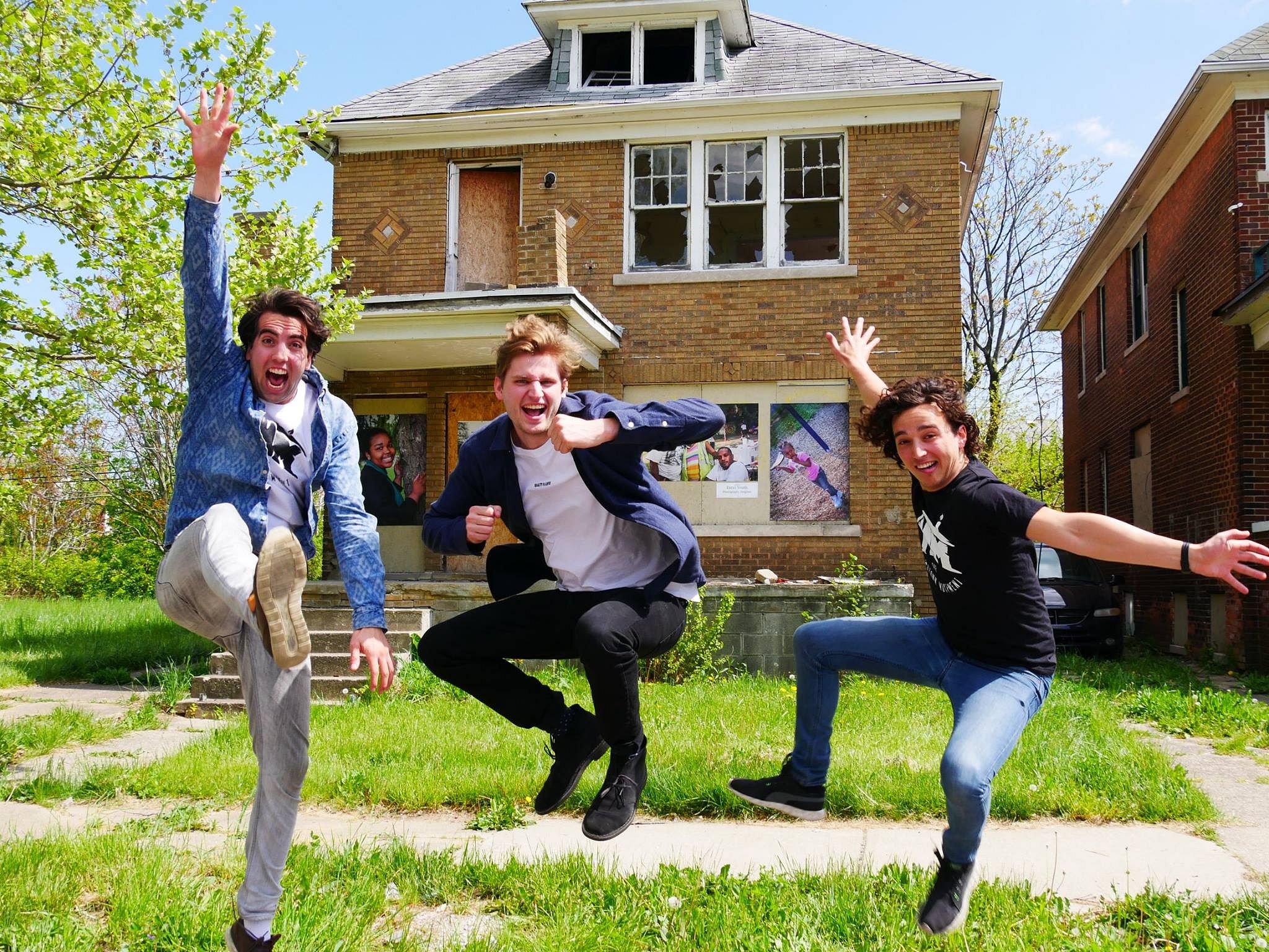Internationally Detroit is known for music, cars and, unfortunately due to the restructuring of the auto-industry and financial crises, poverty and urban decay.
Three architecture students from TU Delft have started a non-profit to fight climate change by making quality, sustainable housing options cheaply available for all citizens of the iconic city.
The initiative is called the Motown Movement, and was started by three undergraduate students who all have, or are on their way to graduating: Bob Hendrikx, Dominik Lukkes, and Ronen Dan. Interest in the topic was piqued by Hednrikx’s study of Shrinking Cities looking at Manchester and Detroit, and after an all-American road trip passing through Detroit in 2015 the three students came together in February to work on the project.
The idea ultimately developed into a plan to buy and renovate a home with the first floor acting as a community house, informing residents of affordable, low-tech, do-it-yourself ways to make their homes more sustainable and, ultimately, save them money. According to Hendrikx there will be ‘menus’ with sustainability methods for different price ranges, including how much they can save, and lectures teaching the community how to implement them. The second floor would be a sustainable home for a family who lost theirs to foreclosure, both giving back to the community and providing proof of concept. As Dan explained, “We saw this opportunity to help people with the technology we have, and their strong culture of self-sufficiency.” They bought the home during their preliminary trip April to May of this year, and also found a series of already established non-profits to work with them.
Although they have met extensively with many larger institutions, the team members all emphasised the importance of a bottom-up approach, particularly in such a racially, economically-divided area. Dan referenced the phrase ‘nothing about us, without us is for us’ and said the group quickly learned the importance of working with the community to build a lasting project and avoid the infamous white saviour complex. Many artists, groups and individuals undertake similar initiatives, however often when their project is over they leave the project behind without making a lasting impact. This creates a further level of distrust, and is something The Motown Movement is also keen to avoid.
The group is funded both by sponsors and crowd-funding and they are still raising money. They will be returning in September to establish the house, and hope that as well as being self-sustaining once they leave, this could be a model students can use in other cities.



Comments are closed.